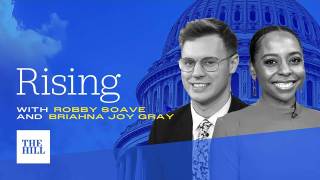Why we just sued the US Department of Labor
When the U.S. Department of Labor finalized its new rule this month redefining who can be classified as an independent contractor, acting Labor Secretary Julie Su said she was specifically trying to stop the exploitation of women and individuals with disabilities. That’s us. We should be thrilled, but we most definitely are not. The new rule is so vague and confusing, it could harm — if not destroy — our chosen careers.
This rule doesn’t actually protect freelance writers and editors like us, or any of the independent contractors in hundreds of professions ranging from trucking to financial services. Instead, this clear-as-mud rule gives the department carte blanche to impose regulatory wrath on any of our clients as it sees fit. Our clients then can face serious fines and penalties for working with us as independent contractors, and our freelance businesses go poof. Even if we’re registered as limited liability companies. Even if we negotiate mutually agreeable contracts. Even if we, as small business owners, have no desire to be anyone’s employees.
That’s why, through our pro bono counsel, the Pacific Legal Foundation, we filed a complaint in federal court asking to find the department’s rulemaking invalid. Our goal: to keep our careers as freelance professionals and to protect the right for America’s tens of millions of independent contractors to choose self-employment.
The story of how we arrived in this “Twilight Zone” episode began in 2019, when California enacted a law that most Democrats, including then-candidates Joe Biden and Kamala Harris, supported to effectively make nonunionizable careers like ours illegal. Though we don’t live in California, we were terrified. Independent contractors from wide-ranging professions warned that this regulatory language would be a disaster. Lawmakers wouldn’t listen.
When this freelance-busting crowd then tried to pass a similar bill in New Jersey, we created the advocacy group Fight For Freelancers, helping kill the bill and keeping our careers safe. Or so we thought.
Similar language was immediately pushed federally, in the Protecting the Right to Organize (PRO) Act, as part of the Biden campaign’s promise to make California’s approach the basis for all labor, employment and tax law. Again, we fought and won. The PRO Act failed to pass, in part because a handful of Democrats, including Sens. Mark Warner (Va.) and Mark Kelly (Ariz.), refused to sign on — explicitly saying they didn’t want legitimate independent contractors like us harmed.
As one of us testified before Congress last year, the Biden administration remains relentless. It’s now attempting a regulatory workaround with the Department of Labor’s independent contractor rule, which, in a cruel twist, was released just days before Mercatus Center research showed that the protesting independent contractors have been right all along. Mercatus found that the California approach not only failed to create unionizable jobs, but actually decreased overall employment by 4.4 percent and self-employment by 10 percent. Mercatus also noted that this happened despite California ultimately exempting more than 100 professions. The new Labor rule exempts none.
The department acknowledges there may be “conceptual overlap” with the California law’s most harmful language. We agree. What’s worse is that the Labor rule is so vague, it’s impossible for anyone to know how to operate legally with independent contractors. The Biden administration sees this as a feature, not a bug.
Skilled professionals like us are among the fastest-growing segments of the independent workforce. More than a quarter of independent contractors hold postgraduate degrees. As of October, freelancers performed about 20 percent of organizations’ work, with firms saying the share would rise.
That’s fine by us. In June 2023, Pew Research found that self-employed Americans — far from being exploited — are more likely happier at work than employees. Pew’s findings line up with studies dating to at least 2015, including the government’s own research, showing 70 percent to 85 percent of independent contractors are happier and healthier as our own bosses. Even amid 2021’s pandemic uncertainty, 60 percent of us said no amount of money would convince us to take a traditional job.
We hope the court will invalidate the Labor rule and protect our careers. We further hope there will be bipartisan support for use of the Congressional Review Act, led by Rep. Kevin Kiley (R-Calif.) and Sen. Bill Cassidy (R-La.), to block the rule from taking effect March 11.
Lawmakers on both sides of the aisle should recognize what we’ve said all along: Protecting the right to go into business should not be a partisan issue. This is bad policy and bad politics. If the rule stands, this November, as many as 72 million Americans could walk into voting booths thinking, “It’s our careers or theirs.”
We hope it won’t get that far. That’s why we are asking the court to invalidate this latest attempt to misclassify us as employees, before any more damage is done.
Kim Kavin, Jen Singer, Deborah Abrams Kaplan and Karon Warren are co-founders of Fight For Freelancers USA, a grassroots, nonpartisan, self-funded group that advocates to protect the choice of self-employment.
regular post copyright











